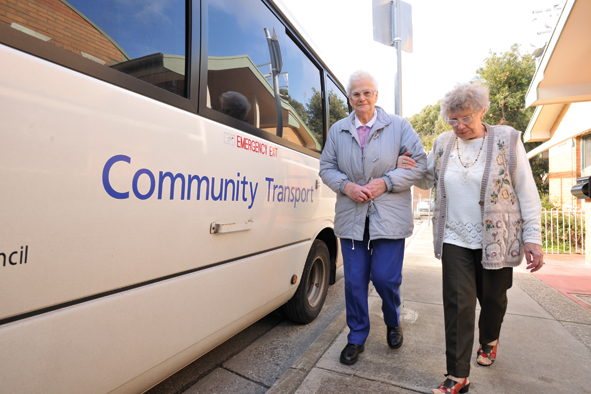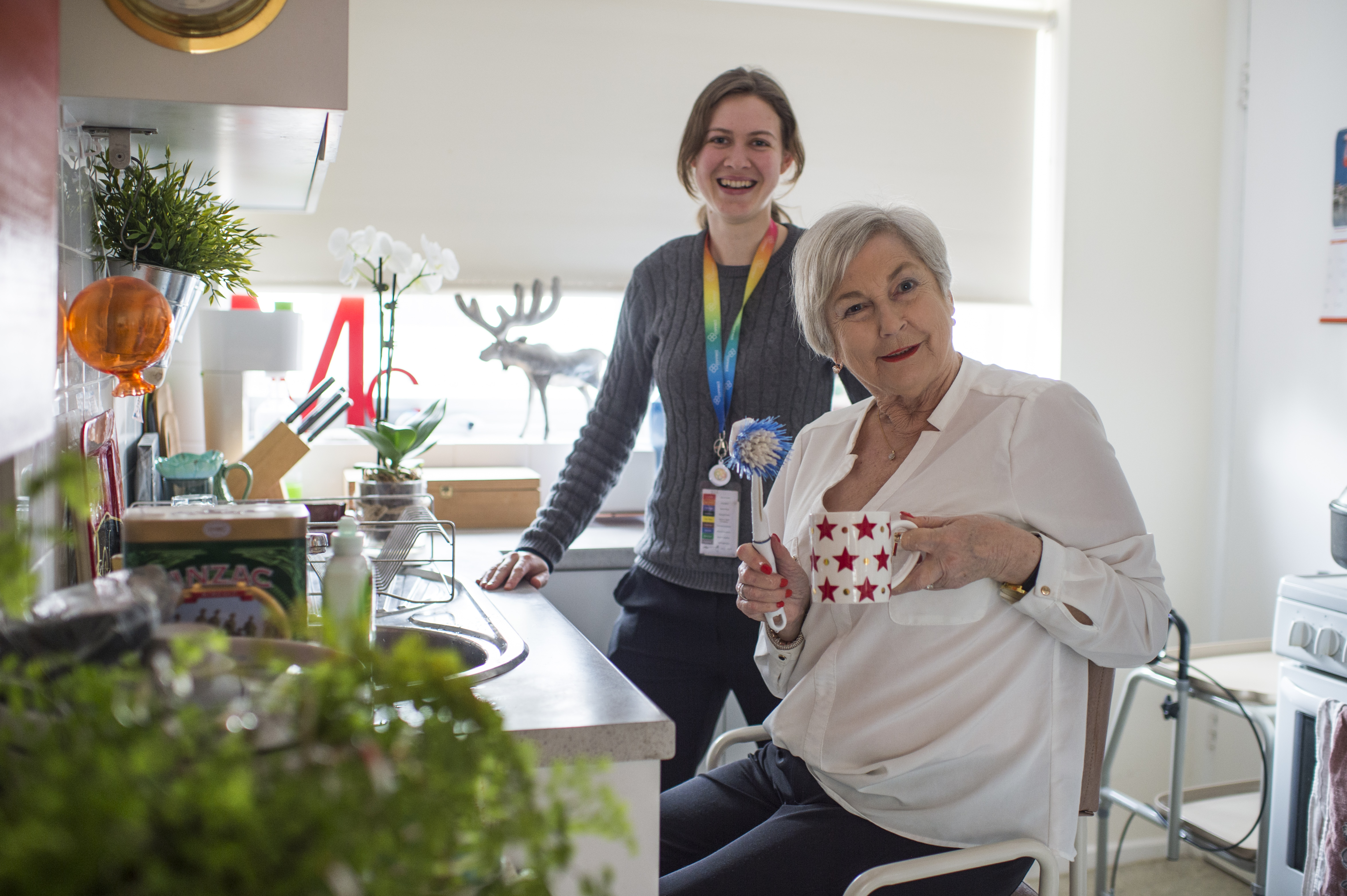Select from the following services

Smart Eating Week 10-16 February, 2020
Healthy eating is just as important for older adults as it is for everyone, and eating should be an enjoyable and sociable activity that we can look forward to, while still being a healthy one.
Unfortunately a number of older Australians have poor diets – often as a result of not eating a variety of nutritious foods. When we don’t give our bodies the nutrients we need, our health can suffer.
Enjoy a variety of foods
Appetite can often decrease as we get older, so eating a variety of foods is both important to ensure we get the nutrition we need and can also help keep food appealing.
Older adults should eat foods that are high in nutrients from the five food groups, including:
Some foods, such as lollies, chocolates, soft drinks, potato chips and cakes, do not fit into the five food groups. These are not needed for our bodies and are often called ‘sometimes’ foods, because they should only be eaten every now-and-then and in small amounts.
A great resource to help you work out whether the foods you are eating are good for you is the Live Lighter website at https://livelighter.com.au/
Drink plenty of water
As we get older, we often don’t feel thirsty, even when our body wants fluid.
So it is important to make sure to take regular drinks, which can include water and other drinks such as soda water, fruit juice and milk. Small amounts of tea and coffee can also be included.
Small changes, big benefits
By making a few changes to our diet, we can make a big improvement to our nutritional intake.
For example, if we replace an afternoon piece of cake with a piece of fruit, or a regular can of soda with a plain mineral water, our body will receive an increase in the food it needs while reducing the levels of dangerous substances like sugars and fats.
Fibre
By choosing foods that are high in fibre, such as fruits, vegetables, legumes and wholegrain varieties of bread and cereals, we can encourage good bowel health.
Protein
Be sure to eat protein-rich foods, like meat, fish, poultry, eggs, soybeans and nuts. Our need for protein increases when we reach our 70s – protein in the diet helps heal wounds, which can be important as older people often undergo more injuries or surgeries.
Calcium
Enjoy foods high in calcium such as low-fat milk, cheese, custard and yoghurt to help prevent or slow the progression of osteoporosis. Calcium-enriched soy milk and fish with soft, edible bones like canned salmon or sardines, are also good sources of calcium.
Vitamin D
Vitamin D is also important in bone health for older adults. We mainly get Vitamin D from sunlight, and smaller amounts from foods including margarine, dairy products, oily fish, cheese and eggs.
If you are mostly confined indoors and don’t get much exposure to sunlight, you should seek advice from a medical professional about Vitamin D supplements.
Fats
Limit the saturated fats that you eat and keep an eye on your total fat intake. Good fats, like avocados and salmon are always welcome.
Salt
Limiting the use of salt, and choosing foods that are low in salt, is important as we age.
Unfortunately, as the years go by our sense of taste can decrease. But rather than adding salt, explore other ways you can add flavour to foods, including the use of spices and fresh herbs.
Enjoy preparing and eating meals
By keeping a well-stocked pantry and freezer, you can easily make healthy meals without having to head to the supermarket. Frozen fish and vegetables can partner with legumes and pasta to create a healthy, nutritious meal.
And whenever possible, try to share mealtimes with family and friends.
Eat to match your lifestyle
The amount and types of foods we eat can be affected by the changes to our lifestyle as we get older. These may include not having the energy or motivation to prepare food, feeling lonely or anxious, not feeling hungry, problems swallowing or chewing, a decreased sense of taste and not being as physically active.
These often lead to meal-skipping and generally eating poorly, so look at the following ideas to help you eat regularly.
Try:
Is your eating on track?
To find out more about the Five Food Groups, ‘sometimes’ foods and how much you need to eat to be healthy visit https://www.eatforhealth.gov.au/food-essentials/how-much-do-we-need-each-day/recommended-number-serves-adults
Keeping healthy and happy
Enjoying a healthy diet and staying active can help keep us healthy as we age. Just remember to eat well, keep moving, and call on friends and family whenever you need help along the way.
Connect Health & Community Dietitians are here to help you, or a loved one, achieve your nutrition goals. Our Community Nurse service can also help you or a loved one who may need help around the home, and our Speech Pathologists can help those with chewing or swallowing difficulties.
For more information call us on 03) 9575 5333.
Source: sahealth.sa.gov.au
A youth mental health initiative developed with students during Victoria’s lockdowns, is hoped to help reduce the stigma surrounding mental health issues and encourage teens to seek help early.
Read MoreOur Health Promotion team is supporting early learning centers through the Achievement Program, an initiative that helps services create a healthier environment for their students, staff and families.
Read MoreThis Children’s Week, we asked our paediatric team to share some of their favourite activities for kids that embrace the importance of play for a healthy lifestyle.
Read More
Speech pathologists provide assessment and management of communication, swallowing and feeding difficulties.
Read More
We have been offering safe and quality door-to-door transport options to our community since 1975.
Read More
We provide Occupational Therapy to help children, adults and those experiencing mental health issues, to achieve their full potential.
Read MoreSelect from the following services